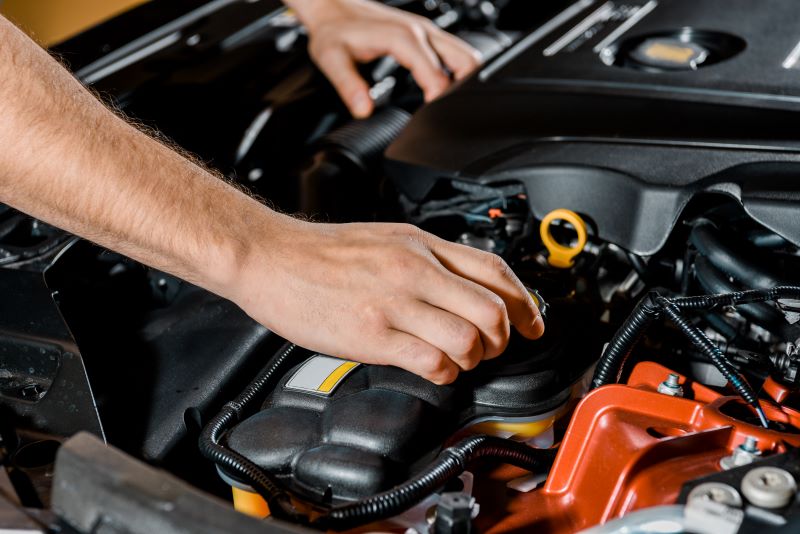In the ever-changing landscape of corporate social responsibility, local businesses, such as auto body shops, are uniquely positioned to drive significant impact in their communities by partnering with non-profit organizations. The seemingly disparate worlds of collision repair and philanthropy can, in fact, intersect in meaningful and mutually beneficial ways. Leveraging resources, creating charity events, and building partnerships are just a few avenues through which these establishments can fuel the success of non-profits. The potential for creating a profound, localized impact is immense, inviting us to explore further the strategic role such businesses can play in community upliftment and non-profit success.
Key Takeaways
– Donating a portion of profits or specific services to non-profit organizations can foster goodwill and set auto body shops apart from competitors.
– Consult with a tax professional to ensure proper handling of charitable contributions and maximize tax deductions.
– Organizing charity events with clear fundraising strategies and effective promotion can contribute to local communities, gain positive publicity, and potentially attract new customers.
– Building partnerships with non-profits can amplify the positive impact of auto body shops on local communities, strengthen non-profit branding, and create mutually beneficial relationships.
Harnessing the Power of Donations
Leveraging the immense potential of charitable donations, local auto Body Shop have discovered a compelling method to drive both their business growth and community development. By adopting thoughtful donation strategies, these businesses are expanding their social impact while simultaneously enhancing their reputation and profitability.

Donation strategies typically involve contributing a portion of profits, or even specific services, to community organizations. Auto body shops, for instance, might donate repair services to non-profit organizations that rely on vehicles to deliver their services. Not only does this strategy foster goodwill within the community, but it also provides the auto body shop with a unique marketing angle, setting them apart from competitors.
A crucial aspect to consider in these donation strategies are the tax implications. By making charitable contributions, businesses can often deduct these donations from their taxable income. This deduction can significantly reduce tax liability, making it a financially sound strategy as well. However, it is important to consult with a tax professional to ensure that these deductions are handled correctly.
Organizing Charity Events
In addition to direct donations, a considerable number of auto body shops are also realizing the benefits of organizing charity events, a strategy that promotes community engagement while simultaneously bolstering their business profile. By hosting such events, these businesses not only contribute to their local communities but also gain positive publicity, potentially attracting new customers.
To maximize the impact of these charity events, auto body shops should consider the following:
1. **Develop a Clear Fundraising Strategy:** Outline your financial goals and plan activities that will help you achieve them. This could include auctions, raffles, or a percentage of sales going to the chosen charity.
2. **Effective Event Promotion:** Utilize your business’s social media platforms, local press releases, and word-of-mouth to spread the word about your event. This ensures maximum attendance and increases the likelihood of reaching your fundraising goals.
3. **Partner with Local Non-Profit Organizations:** Collaborating with local non-profits not only provides credibility to your event but also allows for shared resources and a wider audience reach.
Building Body Shop Partnerships With Non-Profits
Building upon the idea of hosting charity events, forging partnerships with non-profit organizations can significantly amplify the positive impact auto body shops can have on their local communities. By aligning with non-profits, these enterprises can marry their corporate social responsibility goals with the non-profit’s mission, creating a synergy that bolsters both non-profit branding and community engagement.
This alliance can take various forms, from sponsorship of community events to providing discounted services for non-profit fleets. Such partnerships not only elevate the non-profit’s brand but also strengthen the auto body shop’s standing in the community, fostering greater trust and patronage.
Moreover, these collaborations offer an opportunity for auto body shops to leverage their technical expertise for the greater good. Offering vocational training programs in partnership with non-profits, for instance, can create pathways to stable employment for community members.
Nevertheless, for these partnerships to be successful, they must be underpinned by shared values and clarity of purpose. Therefore, auto body shops should carefully select non-profit partners that align with their ethos and can mutually benefit from their resources and skills. By doing so, they can effectively fuel non-profit successes while driving their own growth.
Impact of Social Responsibility Efforts
Undeniably, the efforts auto body shops put into social responsibility can have profound and far-reaching impacts on both their business growth and the communities they serve. The act of giving back, through corporate philanthropy, not only strengthens community engagement but also fosters a strong reputation and customer loyalty.
The impact of social responsibility efforts can be categorized into three main areas:
1. **Business Growth**: Corporate philanthropy can amplify business success. When a company is seen investing in its community, customers are more likely to support it, leading to increased patronage and profitability.
2. **Community Development**: By supporting non-profit organizations, auto body shops can contribute to community development. This can result in improved local infrastructure, education, and social services.
3. **Employee Morale**: Employees often feel proud to be part of a company that gives back. This boosts morale, increases productivity, and aids in talent retention.
Conclusion
In summation, local auto body shops can drive significant change in their communities through philanthropic endeavors. Their investment in donations, charity events, and strategic partnerships with non-profits can not only enhance their corporate social responsibility but also fuel the engine of non-profit success. Thus, it is pivotal for auto body shops to explore this philanthropic pathway, illuminating the route to a more prosperous and socially conscientious business landscape.